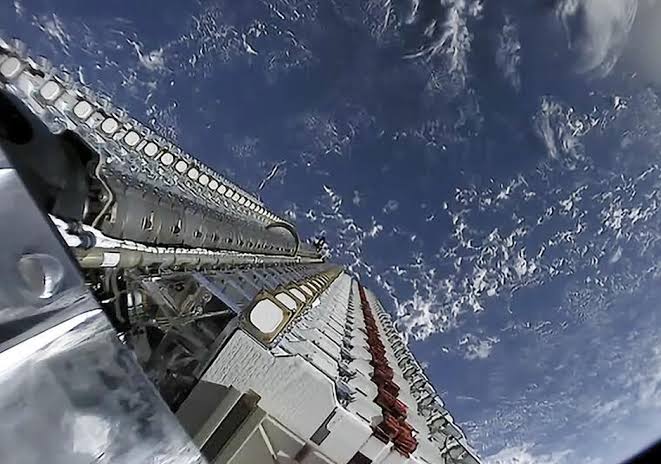
As China’s Rocket Debris Crashes Back to Earth, Lands in the Indian Ocean Near the Maldives.
Debris from a rocket launched by China crashed back to Earth on Sunday, landing in the Indian Ocean, according to China’s space agency, after days of speculation over where it could end up and when.
Parts of the Long March 5B rocket re-entered the atmosphere at 10:24 a.m. Beijing time (10:24 p.m. ET), the China Manned Space Agency said in an English-language statement on its website.
The coordinates put the point of impact in the Indian Ocean somewhere above the Maldives archipelago and south of India. Most of the debris was burned up in the atmosphere, it said.The 98-foot-long, 20-ton rocket, which launched April 29 carrying the main module of the country’s new space station, was on the first of 11 expected missions to complete the project.
It’s common for parts of rockets to fall back to Earth, but this piece caused concern because its lack of control meant experts weren’t sure where it would strike.
There was a tiny chance that the debris could have hit New York, Los Angeles, Madrid, Rio de Janeiro, Beijing or the Nigerian capital, Abuja.U.S.
Space Command also confirmed that the rocket re-entered over the Arabian Peninsula at about 10:15 p.m. ET; it said in a statement that it was unknown whether the debris struck land or water.
“An ocean reentry was always statistically the most likely,” Jonathan McDowell, an astrophysicist at the Harvard-Smithsonian Center for Astrophysics, who tracked the tumbling rocket part, said in a tweet. “It appears China won its gamble. … But it was still reckless.”NASA Administrator Bill Nelson accused China in a statement of “failing to meet responsible standards regarding their space debris.
“Spacefaring nations must minimize the risks to people and property on Earth of re-entries of space objects and maximize transparency regarding those operations,” he said.Usually, discarded rocket stages don’t reach orbit and instead crash down to Earth, often into water.
But that didn’t happen this time. Instead, the first stage of the Long March 5B rocket reached orbital velocity rather than fall downrange, according to the California-based Aerospace Corporation.
That meant the empty rocket body entered an elliptical orbit around Earth, where it began being dragged toward an uncontrolled re-entry, the corporation said.Ahead of the landing, the nonprofit organization put the chance of the debris’ landing in the ocean at 75 percent. It said 20 percent to 40 percent of the rocket’s remnants were likely to reach the ground or water.
Chinese Foreign Ministry spokesman Wang Wenbin said Friday that the rocket would burn up on re-entry, saying its descent was “common international practice.”
The state-run tabloid Global Times dismissed concerns that it was “out of control” and could cause damage as “Western hype.”
China’s first space station, Tiangong-1, crashed into the Pacific Ocean in 2016 after Beijing confirmed that it had lost control. In 2019, the space agency controlled the demolition of its second station, Tiangong-2, in the atmosphere.
A year ago, another Chinese rocket piece passed over New York and Los Angeles before it crashed into Ivory Coast, in West Africa, where it damaged buildings but wasn’t reported to have caused injuries.Experts said the re-entry of the rocket debris this weekend is part of a bigger problem that is only going to get worse as countries launch more rockets that could cause damage by crashing back to Earth or collide and create clouds of space debris that could imperil other satellites or astronauts.


